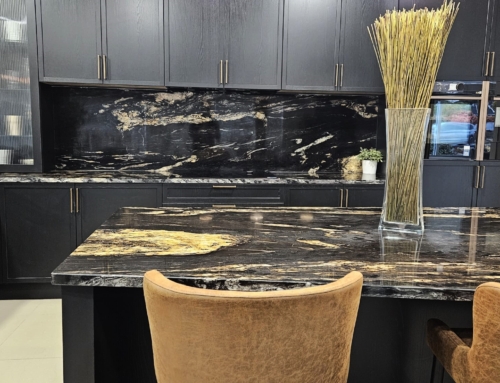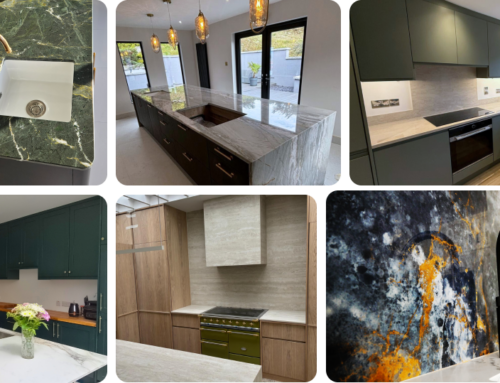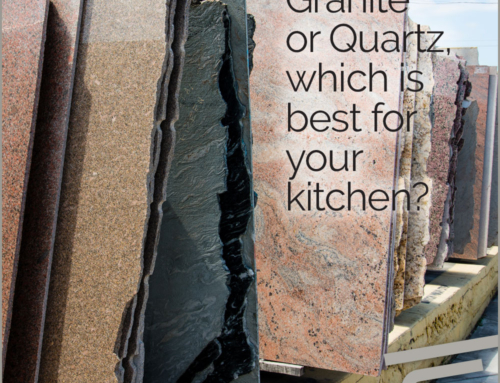
Is Granite better than Quartz?
When it comes to kitchen and bathroom countertops, the choice between granite or quartz often sparks heated debates among homeowners and designers alike. Both materials are highly sought after, offering unique benefits and aesthetic appeal. But which one is truly better? Let’s explore the characteristics, advantages, and drawbacks of granite or quartz to help you make an informed decision.
What Are Granite and Quartz?
Granite
Granite is a natural stone formed through the cooling and solidification of magma deep within the Earth’s crust. It is extracted from quarries, cut into slabs, and polished to create stunning countertops. Each piece of granite is unique, featuring natural variations in color and pattern.
Quartz
Quartz countertops are engineered stone surfaces made by combining 90-95% natural quartz crystals with 5-10% polymer resins and pigments. This manufacturing process results in a durable, non-porous surface that mimics the look of natural stone but offers enhanced functionality.
The Pros and Cons of Granite
Pros:
-
- Natural Beauty: Granite’s organic patterns and textures give it an unmatched natural beauty. No two slabs are identical, ensuring a one-of-a-kind look for your space.
-
- Heat Resistance: Granite can withstand high temperatures, making it ideal for placing hot pots and pans directly on the surface without damage.
-
- Durability: Granite is tough and resistant to scratches, making it suitable for busy kitchens.
-
- Adds Value to Your Home: The timeless appeal of granite can enhance your property’s resale value.
Cons:
-
- Porosity: Granite is a porous material, meaning it can absorb liquids and stain if not sealed properly. Regular sealing is required to maintain its appearance and hygiene.
-
- Maintenance: It requires more upkeep compared to quartz, including periodic resealing to prevent staining and bacteria buildup.
-
- Inconsistent Patterns: While unique patterns are a selling point, they can make it challenging to match slabs or create a uniform look in larger installations.
-
- Cost Variability: Depending on the rarity and origin of the stone, granite can be expensive.
The Pros and Cons of Quartz
Pros:
-
- Non-Porous Surface: Quartz is non-porous, making it resistant to stains, bacteria, and moisture. This feature ensures a hygienic and low-maintenance surface.
-
- Wide Range of Designs: Engineered quartz offers a variety of colors, patterns, and finishes, including options that mimic natural stone without its inconsistencies.
-
- Low Maintenance: Unlike granite, quartz does not require sealing. Routine cleaning with mild soap and water is sufficient.
-
- Durability: Quartz is incredibly hard and resistant to scratches, chips, and cracks.
-
- Consistency: The manufacturing process ensures a uniform appearance, making it easier to match slabs and achieve a cohesive design.
Cons:
-
- Heat Sensitivity: Quartz is not as heat resistant as granite. Prolonged exposure to high temperatures can damage the resin, leading to discoloration or cracks.
-
- Cost: While quartz prices are competitive with granite, high-end quartz can be equally, if not more, expensive.
-
- Artificial Look: Some homeowners feel that quartz lacks the natural, organic beauty of granite due to its engineered nature.
-
- Limited Outdoor Use: Quartz is not recommended for outdoor applications as UV rays can cause discoloration over time.
Comparing Granite or Quartz
Appearance
Granite offers unparalleled natural beauty with unique patterns and colors, while quartz provides a consistent and customizable aesthetic. Your choice will largely depend on whether you prefer the natural imperfections of granite or the sleek, tailored look of quartz.
Durability
Both materials are highly durable, but quartz edges out granite due to its non-porous surface and lower maintenance requirements. However, granite’s superior heat resistance gives it an advantage for high-heat applications.
Maintenance
Quartz wins in the maintenance department. Its non-porous surface eliminates the need for sealing, while granite requires periodic resealing to maintain its resistance to stains and bacteria.
Cost
The cost of both materials can vary widely based on factors like brand, design, and installation. Generally, quartz and granite are in the same price range, but granite may be more affordable depending on the stone’s rarity and source.
Eco-Friendliness
Granite is a natural material, but its extraction process can have a significant environmental impact. Quartz, while engineered, often incorporates recycled materials, making it a more sustainable option in some cases. so which is it ? Granite or Quartz ?
Which One is Better for You?
The answer to whether granite is better than quartz depends on your specific needs, preferences, and lifestyle. Here are some scenarios to consider:
-
- Choose Granite If:
-
- You love natural stone and unique patterns.
-
- You need a heat-resistant surface for heavy cooking.
-
- You don’t mind periodic maintenance.
-
- Choose Granite If:
-
- Choose Quartz If:
-
- You want a low-maintenance, stain-resistant surface.
-
- You prefer a consistent design with customizable options.
-
- Hygiene is a top priority in your household.
-
- Choose Quartz If:
Final Thoughts
Granite or quartz each have their own strengths and weaknesses, and the best choice ultimately depends on your priorities. Granite offers natural beauty and heat resistance, while quartz provides durability, low maintenance, and design versatility.
In the end, both materials are excellent choices for countertops, and either one can elevate the style and functionality of your space. Whether you choose the timeless elegance of granite or the modern practicality of quartz, you’re investing in a high-quality surface that will stand the test of time.
Why not ask a professional at Stonefacings or The Stone Studio
We look forward to seeing you soon!
Contact us for further information on 00353 1 2956006 or info@thestonestudio.ie
or check out Stonefacings Ltd






